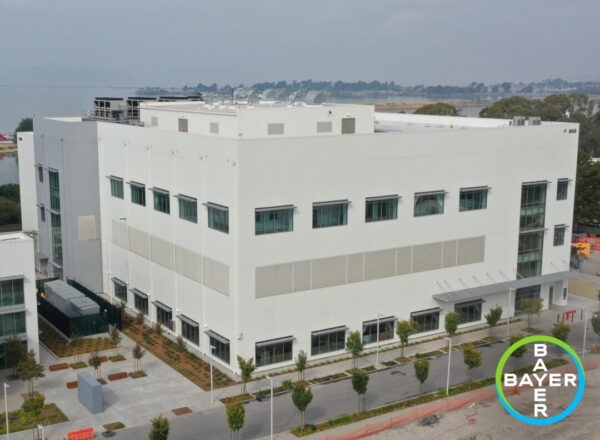
As biopharmaceutical companies progress in their research of new cell and gene therapies, each one encounters the same choice: outsource the manufacturing of these complex medicines or build that production capability in house. Bayer chose the latter, and on Tuesday it opened a new $250 million cell therapy manufacturing site at its campus in Berkeley, California.
Called the Cell Therapy Launch Facility, the new Bayer site will initially be responsible for making bemdaneprocel, a cell therapy in clinical development for Parkinson’s disease. The facility also has additional space for producing other cell therapies.

With the Rise of AI, What IP Disputes in Healthcare Are Likely to Emerge?
Munck Wilson Mandala Partner Greg Howison shared his perspective on some of the legal ramifications around AI, IP, connected devices and the data they generate, in response to emailed questions.
In Parkinson’s, patients lack sufficient amounts of dopamine, a brain chemical. Bayer subsidiary BlueRock Therapeutics developed bemdaneprocel as an “off-the-shelf” therapy. It’s made by taking cells from healthy donors and reprograming them to become induced pluripotent stem cells, which have the capability to become almost any type of cell. BlueRock turns these cells into dopamine-producing neurons. Transplanted into the brains of patients, these cells are intended to replace the lost dopamine production, potentially reforming neural networks and restoring motor and non-motor function.
The opening of the new Bayer cell therapy manufacturing site follows the reporting of Phase 1 data for the Bayer Parkinson’s cell therapy in August. In the open-label study enrolling 12 patients, bemdaneprocel was shown to be safe and well tolerated measured at one year. There were also early signs of potential efficacy as the results showed improvement on measures of Parkinson’s symptoms. The next step for bemdaneprocel is a Phase 2 study that BlueRock expects to begin in the first half of 2024.
“Our teams are driving innovation in late-stage development and manufacturing with a goal of bringing transformational cell and gene therapies to patients on a global scale, and this facility will enable us to make it real,” Jens Vogel, senior vice president and global head of biotech for Bayer’s Pharmaceutical Division, said in a prepared statement. “Bayer is collaborating with biotech innovators, academia, and equipment and automation suppliers to establish platforms that would help bring more therapies to patients faster.”
Bayer’s Berkeley campus, which employs about 1,000, has been the global commercial supply center for manufacturing and supplying Bayer’s hemophilia A biotherapeutics for the past 30 years. Expansion at the site added cell and gene therapy development capabilities. Bayer described its new 100,000 square-foot cell therapy manufacturing facility as part of a transformation at the site, where the pharma giant has invested nearly $500 million over the past five years.
More investment is coming. Bayer and Berkeley officials agreed to a 30-year extension of a development agreement. Under this pact, the city is allowing Bayer to proceed with plans for up to 1 million square feet in additional infrastructure. Meanwhile, the pharma giant pledges to invest more than $30 million in the community through efforts that include career technical education, health equity initiatives, economic resiliency, and climate action.
Photo by Business Wire














